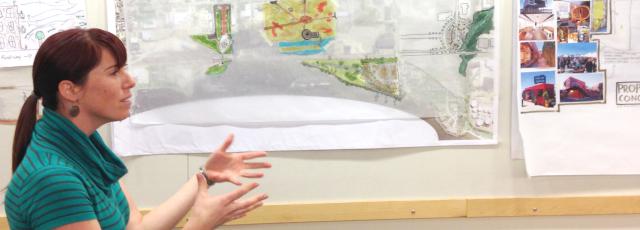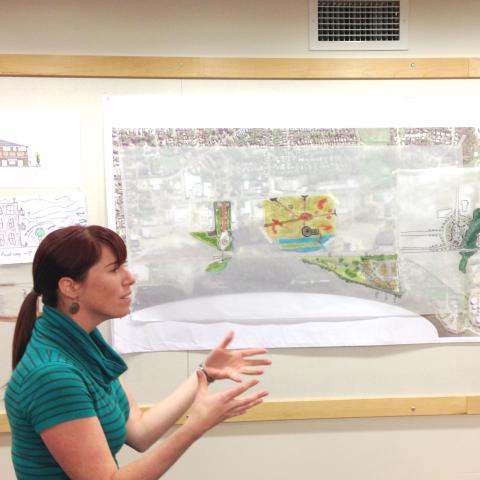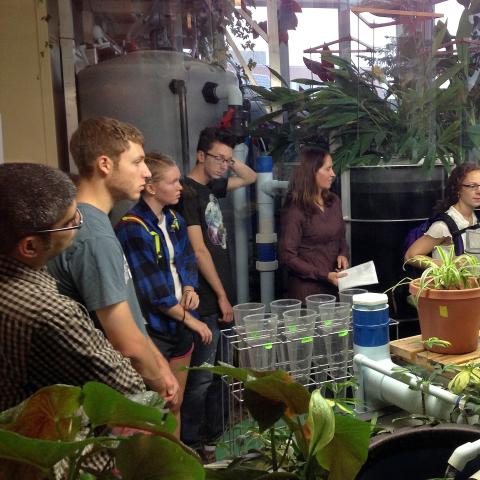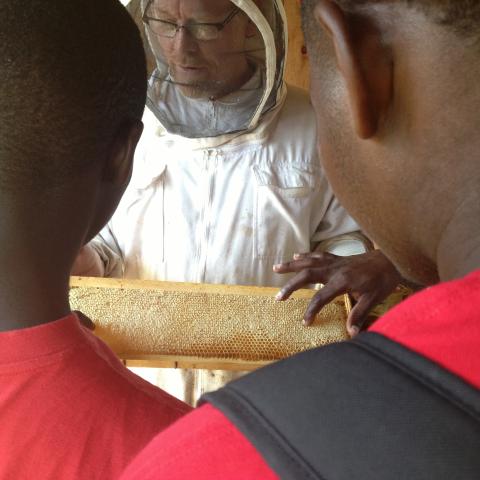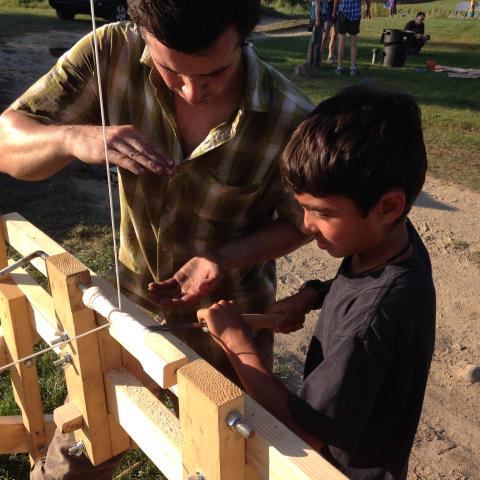Grant Year
2015, 2014, 2013Project Leader/s
Project Description
Faced with the realities of climate change and peak oil, communities around the world increasingly are adopting a strategy of relocalization—actively transitioning away from dependence on cheap fossil fuels (and high carbon emissions) toward a future characterized by local production of food, energy, and goods. Against the backdrop of these shifting dynamics of production and consumption, Professor Walter Poleman and his colleagues at the University of Vermont turned to the Thoreau Foundation for grant funding to help launch the Ecological Design Collaboratory, an interdisciplinary undergraduate program in place-based ecological literacy, design thinking, and practical skills for relocalization.
“Our ability to design elegant ways of living that promote sustainability and vitality will hinge on our understanding of the flora, fauna, climate, culture, physical features, and ecological processes that make a place unique,” says Poleman. “We felt that there was a tremendous need and opportunity to develop a programmatic initiative for undergraduates in place-based ecological design. We provide students with opportunities to participate in design-build projects using local materials and to work with community partners on real-world projects featuring biophilic design, living technologies, and renewable energy. We believe this program can help facilitate a paradigm shift from a consumptive to a sustainable society, and then ultimately to a restorative and healing existence that promotes human and ecological health and well- being.
“Thus far, the Thoreau Foundation’s funding has proven to be an effective catalyst for a range of innovative service-learning projects that have presented solutions to pressing local environmental problems, from removing excess phosphorous from Lake Champlain to growing vegetables without soil in the Bahamas.”
At the Collaboratory, students not only engage in ecological design, but also bring their designs to fruition. With the mentorship of local craftspeople, farmers, entrepreneurs and other community members, they learn to implement their designs—to build the things they have conceived. As Poleman describes, “Some of our most memorable moments have occurred when students learn certain skills, and then turn around and teach them to their peers. They are revitalizing the concept of the guild—old-fashioned social networks where apprentices self-organize and find mentors to teach them particular skills.”
One of the major settings for this modern-day guild dynamic is the GreenHouse Residential Learning Community, which has been transformed into a design/build hub on campus. Containing a design studio, library, computer lab, indoor and outdoor workshops, gallery spaces, and a guest suite for hosting visiting scholars and designers all in place, the Collaboratory is equipped to host a range of design/build courses and projects in the years to come.
Poleman is particularly excited about the opportunity to apply ecological design principles to leadership development. “One of my colleagues, Matt Kolan, is developing workshops and coursework in Ecological Leadership, which is based on the premise that efforts to create a just and sustainable future will depend upon leadership skills, strategies, and mindsets that are inspired by the wisdom of nature.
“With the solid network of partners we have been cultivating on campus and beyond, including the Henry David Thoreau Foundation, we are very excited about the diversity of innovative ideas and projects that have the potential to emerge from the Collaboratory.”
